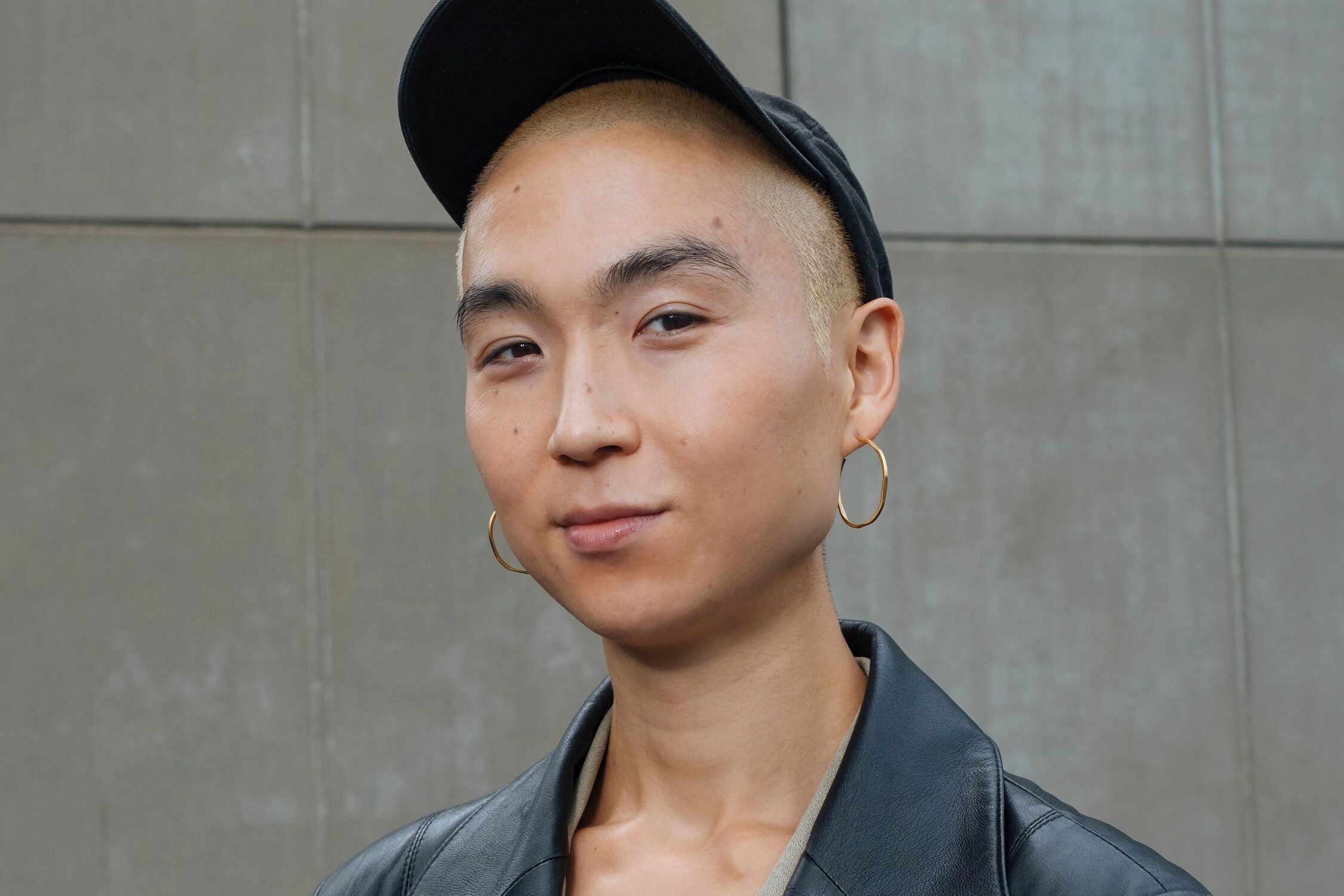yuniya edi kwon

yuniya edi kwon (aka eddy kwon, * Minnesota, USA) is a violinist, vocalist, poet, and interdisciplinary performance artist living in New York City. In her practice she connects composition, improvisation, movement, and ceremony to explore transformation and transgression. Both ritual and mythological practices serve her as a means of revealing or obscuring genealogies.
Her work is inspired by Korean folk timbres and modulations, movements in natural space and American experimentalism, which was influenced by the Association for the Advancement of Creative Musicians, a Chicago-based musicians’ association.
Her work as a choreographer and movement artist embodies an expressive release and reclamation of colonialism’s spiritual imprints, connecting to both Japanese Butoh and a lineage of queer trans practitioners of Korean shamanic ritual.
kwon has collaborated and performed with artists and ensembles of diverse disciplines, including The Art Ensemble of Chicago, Senga Nengudi, Du Yun, Tomeka Reid, Holland Andrews, the International Contemporary Ensemble, Kenneth Tam, Isabel Crespo Pardo, Moor Mother and the Degenerate Art Ensemble. In 2023, she founded SUN HAN GUILD, a sound and performance collective with composers and improvisers Laura Cocks, Jessie Cox, DoYeon Kim, and Lester St. Louis.
She is a lecturer and Arts Fellow at Princeton University, Johnson Fellow at Americans for the Arts, United States Artists Ford Fellow, Civitella Ranieri Fellow, and a recipient of the Robert Rauschenberg Award for Music/Sound from the Foundation for Contemporary Arts.
She has performed throughout the Americas and Europe as a violinist, violist, and/or vocalist with Roscoe Mitchell, Moor Mother, Mary Halvorson, Nicole Mitchell, Henry Threadgill, Cory Smythe, Susan Alcorn, Carla Kihlstedt, Jessika Kenney, Lesley Mok and others.
yuniya edi kwon:
“In my life, I use sound and ritual to create spaces of intense presence and transformation. In all I do, I hope to be radically present with the ongoing, transformational miracle of life, and to share generously with others its resonances, whispers, and subterranean logics. I draw from, and am nourished by, the spiritual and cultural continuums of queer trans artist communities from around the world, and particularly the extraordinary history of trans Korean shamans active during the periods of colonization, occupation, and rebellion. (…)”
All Appearances of yuniya edi kwon
World premiere
yuniya edi kwon: solo violin & voice
Darian Donovan Thomas: violin
Joanna Mattrey: viola
Tomeka Reid: cello
Henry Fraser: double bass
Dudù Kouate: percussion & ritual instruments
Nava Dunkelman: percussion & ritual instruments
“silver through the grass like nothing” draws on the traditions of experimental music theatre and centuries-old ritual practices. On the one hand, kwon refers to the phenomenon of Śarīra: In Buddhism, these are relics, typically small beads, which, according to Buddhist belief, remain in the ashes of deceased Buddhist masters. For this reason, Śarīras are revered in various Buddhist traditions. They are also said to have healing powers. For her performance, she combines the tradition of relic beads with a personal story of suffering. After solo performances, the first ensemble performance will take place in Monheim.
„Collaborative improvisation is a recurring theme in yuniya edi kwon’s artistic practice. „I love collaborating with other artists and I take the responsibility and the privilege of bringing artists together for a project very seriously. For me, the most important thing is our shared human experience together. So, I want to do everything that I can to ensure that each individual has what they need in order to feel free and access their wild creativity.”
Whatever yuniya edi kwon is working on, one thing is certain: „I’m less interested in composing with a capital C, where I like to have this perfect vision and create this perfect score, which is then perfectly executed. I want the object of the work itself to be a partner in my life. It’s a dialectical process: the work feeds me, and I feed it, and we sort of grow together in this spiral.”“
yuniya edi kwon’s art is as unpredictable as life itself.
Excerpt from the Monheim Papers, 2025, Annett Scheffel


